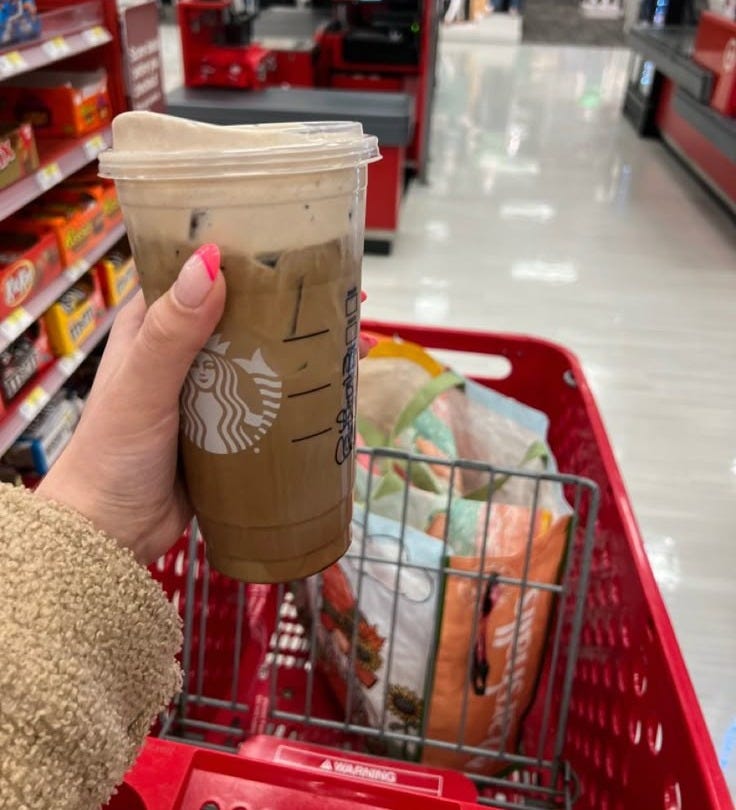Reading Red will always be a free publication, but if you’d like to support me and my work, please consider a paid subscription. 🍒
Money talks. In fact, money is the only thing most people will listen to anymore. Especially those people with their heads so far up their own asses they couldn’t find their way out of their multi-million-dollar mansion without a map. For those people, money is everything.
Since November, I have been selective with where I spend my cash. I cancelled my Spotify, my Amazon Prime, and have not set foot in a TJ Maxx. I want it to be known, even if it is just to one tech support person trying to persuade me otherwise, that I will not be giving any monetary support to businesses or people who do not care if I live or die. Because — let’s be so fully honest for a second — they won’t even know you died until your card payments start bouncing. That is the only thing big companies care about.
Let’s get one thing out of the way: I’m not under any illusion that we can buy our way to world peace and justice. There is no ethical consumption under capitalism; we all know that. Every purchase we make is tangled in some unseen web of underpaid child labor, overseas manufacturing, and boardroom decisions made by white men who wouldn’t know morality if it spit on their glued-together-Cybertruck.
But there’s a difference between not having perfect options and pretending you’re powerless. There's a big difference between being trapped and willingly walking back into the cage because it has cute throw pillows. Too many people — especially the ones who post “eat the rich” memes while clicking checkout at corporations that actively fund policies targeting marginalized communities — have fallen in love with this myth of consumer helplessness. It’s become a convenient little shield. “Oh well,” they shrug, “what else am I supposed to do?” Sweetheart, anything else.
We know economic boycotts work, too. Look at the Montgomery Bus Boycott in 1955. Black residents in Montgomery, Alabama, refused to use the bus system for over a year after Rosa Parks’ arrest. The boycott hit the city’s finances so hard it forced the Supreme Court to step in and desegregate public transportation. Or take the 1980s boycotts of companies doing business with apartheid South Africa: international pressure and consumer divestment played a significant role in the eventual dismantling of the apartheid regime. More recently, brands like Bud Light and Goya have faced immediate financial backlash following political controversies, proving again and again that corporations will respond to collective consumer action when their bottom line is threatened. Money moves mountains, but only when we move it together.
So why (especially in the liberal field I work in) do all of my coworkers continue to shop at Target!?
Target is quietly and steadily aligning itself with the same MAGA-adjacent agenda that seeks to roll back civil rights, suppress queer and trans existence, and reinforce the myth of white, Christian supremacy as the American default. In 2023, following backlash from far-right groups over their Pride Month merchandise, Target not only pulled some of the items from stores but also repositioned them to the back of select locations, literally and figuratively pushing queer people out of sight. This wasn’t just a PR decision. It was a signal: that profit mattered more than people. That if push came to shove, they’d cave to fascists. And now, with their PACs quietly funneling donations to Republican candidates, including those endorsing Trump and his agenda. Target is not just selling cheap goods; it’s selling complicity.
This is the part that really pisses me off because the hypocrisy isn’t just coming from your Fox News uncle or the Karens at Hobby Lobby. It’s coming from people who should know better. People who will sign every online petition, repost every carousel post on Instagram, and still, without a hint of irony, beam when they tell me, “Thanks! It’s from Target.”
I work in a liberal, helping-profession bubble. It’s the kind of environment where you’d think people would be a little more mindful. You know, folks who attend DEI trainings, add their pronouns to email signatures, and work with vulnerable populations every single day. But somehow, when it comes to aligning their actions with their values, the line gets fuzzy. Suddenly it’s just so hard to resist a good deal on joggers or lilac candle.
Let’s be clear: you are working with the very communities that these corporations harm. When Target cowers to far-right pressure and pulls Pride merchandise from the shelves, they’re not just making a business decision — they’re sending a message. They are telling queer kids, Black people, trans folks, and anyone outside the white-picket-fence mold: “Your visibility is conditional. Your safety is negotiable.”
And yet, my white, liberal coworkers continue to treat Target (and Amazon) like their own personal Disneyland. They treat resistance like a vibe, and not an incredibly important responsibility, especially right now in the USA. But it’s not a vibe. It’s a choice. And it’s time we all started making better ones. You can’t shop your way into being a good person. But you can absolutely spend your way out of one.
you have no personality
Running to Red will always be a free publication, but if you’d like to support me and my work, please consider a paid subscription. 🍒









This is brilliant and so so true. I’ve definitely caved to the convenience of Amazon and TJ Maxx, and have probably been able to without thinking much of it because some of the most prominent parts of my demographic beyond being a (straight-passing) queer woman aren’t being targeted by these companies. Taking this article as a catalyst to stop. Thank you for sharing it!